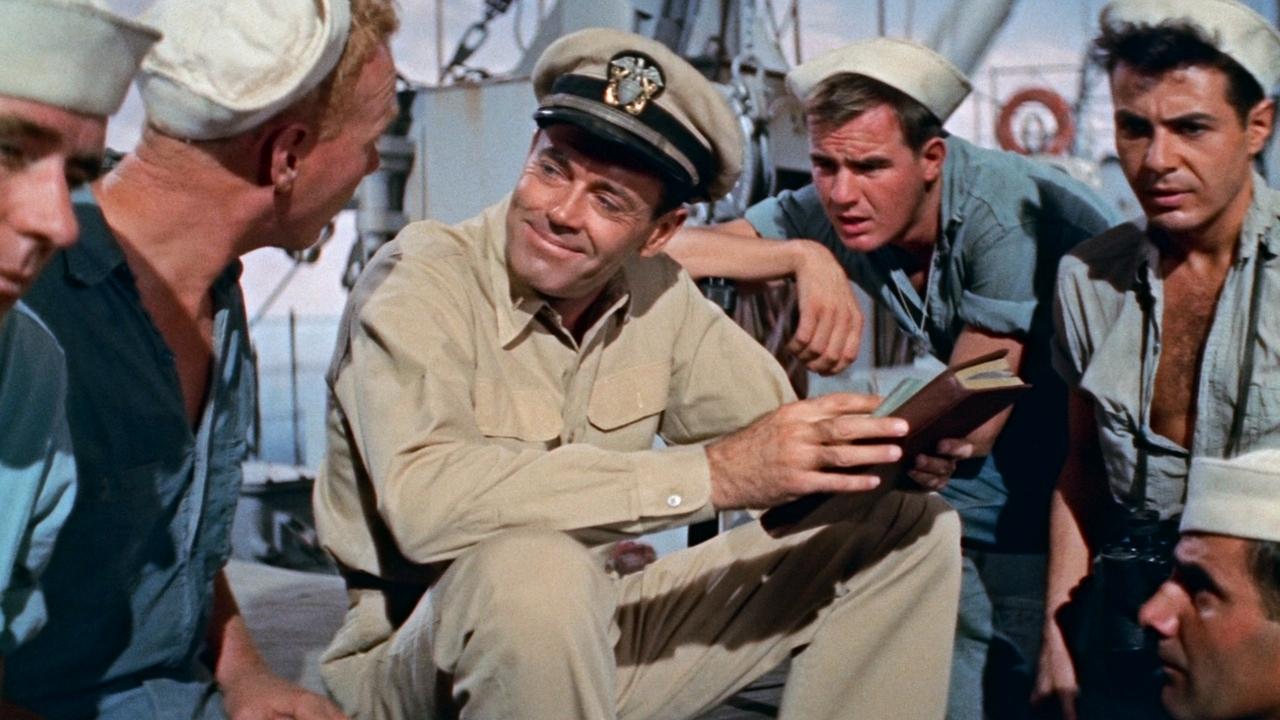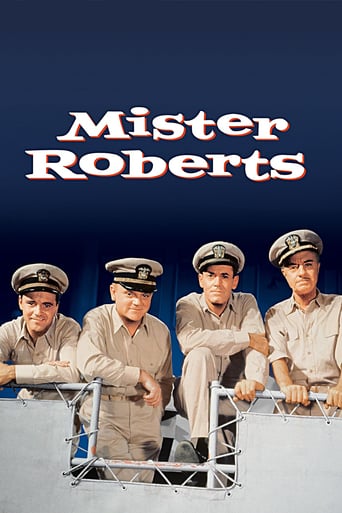TrueJoshNight
Truly Dreadful Film
PlatinumRead
Just so...so bad
Billie Morin
This movie feels like it was made purely to piss off people who want good shows
Matylda Swan
It is a whirlwind of delight --- attractive actors, stunning couture, spectacular sets and outrageous parties.
Droid_1
This movie is an all time favorite for me. I first saw it at an age too young to remember and have watched it many times over(I have my own copy, of course). Its lack of special effects(unless the soap suds can be considered special), The feeling that you could be sitting in a Broadway playhouse even though its a movie, the way it kept my attention without the use of non stop action or violence(are soap suds violent?) and its many great lines make it dear to me. I often use the the James Cagney line "who did it?" at work when a snafu occurs and my "superiors" need a target for their fingers(even though this tends to make me a target)! a do a doo a doo a do do do
a666333
When one looks at the blue chip cast, the director and the basic setting, one feels that it cannot be bad and it could be something unique and special. Unfortunately, it falls well short of the high expectations. Paying tribute to the those who toiled in far-from-combat logistical assignments in WW2 was no doubt appreciated by the many who served in that capacity. At the same time, it makes it more difficult to find suspenseful plot material. That can be compensated for with human interactions and great acting. We don't quite get that either. There just is not much to the plot here. In a way, that is part of the point. These characters lives are not interesting and so they make small things into big things. They are trapped, have no other choice and have to create a facsimile of excitement where there is none. Yes, that point is made but it is not enough to sustain a full film and at times, it seems to stretch believability. It could have been a solid subplot in a film that included a lot more. But obviously, they wanted to drive that point home relentlessly even if you were ready for much more. Many scenes drag and again that might be to reinforce the point that these lives are not interesting. At times, the acting, especially Henry Fonda is like a sleep walk. Anything but exciting and not noteworthy either. You see what I am doing here, i.e. making the same point about the film, over and over again. Just as the movie does with its point. None of the other actors stand out. Cagney is the most inherently skillful of the bunch but his character is limited in scope so it is not the best example of his work. Powell is good but has little to do. He comes across as old and tired (again, is that the point?) I've never been big on Jack Lemon but he has had his great moments such as in "The Apartment" and "Missing". Why he received an academy award for this is beyond me. He is quite irritating here and not in a good way. The best picture nomination is a big stretch. Was 1955 really such a weak year? Were people in awe of the cast and John Ford and so eager to give tribute to the supporting cast in WW2? It is a full colour Cinemascope production but those features are NOT powerfully used here. After all, that would make the lives of these people seem interesting!
popcorninhell
John Ford was the brilliant director behind such American classics as The Searchers (1956), Stagecoach (1939) and The Grapes of Wrath (1940). Henry Fonda was the agile lead actor in such classics as 12 Angry Men (1957) Young Mr. Lincoln (1939) and On Golden Pond (1981). Put them together and add James Cagney, William Powell and Jack Lemmon and you have yourself the amiable Mister Roberts (1955), a movie whose backstage drama should have been called Clash of the Titans.Ford had always been known as a tough man to like yet he did have a stable of reliable actors willing to work with him including Fonda and the legendary John Wayne whom he called the "big idiot". James Cagney recalled meeting him for the first time and immediately knowing there would be personality concerns saying "He told me we would tangle asses". The set of Mister Roberts was made infamous when Ford punched Fonda in the face after an argument. That and an emergency gallbladder operation led Ford to leave Mister Roberts, being replaced by Mervyn LeRoy of Quo Vadis (1951) fame. After LeRoy had finished putting his mark on the film, Fonda brought original play author Joshua Logan in to re-shoot key scenes.What results after all this horse trading is done is a movie that is surprisingly good. Not South Pacific (1958) good but decent enough to pass for nostalgic WWII fare. Fonda stars as Roberts, an under-appreciated junior lieutenant onboard a cargo ship in the middle of the Pacific. He yens to fight with his brethren but is refused multiple transfers by Captain Morton (James Cagney) who sees him as the key to his success in the Navy. Only the wise ship doctor (William Powell) and careless Ensign Pulver (Jack Lemmon) know his motivation to fight the good fight and aspire to help their friend make it to the front.It's hard to tell which director did what to make Mister Roberts the sum of its parts. LeRoy wanted to shoot things how Ford would have and hides his style well. Likewise there is only a handful of interior scenes with drifting camera movements that has Logan's name all over them (Ford used to avoid tracking shots and close-ups).Still the film has the overall feel of having too many chefs in the kitchen. The energy between scenes is jerky overall, most evident when the ship lands ashore for liberty. Actors seem to talk past each other while attempting to convey they're having a good time. Minutes later the scene ends with Roberts standing triumphantly under a warm morning light; then the Captain reestablishes authority. The scenes are cut correctly but lack an overarching theme. We know what Roberts wants yet at this point we should know how he's going to get it. Unfortunately this isn't so. Is Roberts supposed to be pensive, worried or celebratory throughout? Did he feel he won a victory against the Captain for allowing liberty? How does all this relate to his goal? Henry Fonda had always said he was proud of the film but thought seeing the play live was much better. Fonda had been playing the main character for years on the stage and due to being absent from the screen for eight years, likely wanted a surefire triumph to reinstall his box-office appeal. Yet his insistence in adapting the play with only minor changes I feel stifled Ford's attempts to breathe air into the picture.Regardless Mister Roberts is still an interesting film with much to say about the wartime doldrums. Eager soldiers and sailors poise for deliverance and absolution yet are met with a mind-numbing wait. "I'm tired of being a lousy spectator," remarks Roberts. Yet while most military men in WWII eventually saw battle, the crew of the U.S.S. Reluctant never got to be on the frontlines staying listless in the safe area of the Pacific. Still Roberts becomes a hero of a different sort and for that we thank the multiple hands it took to put Mister Roberts to the screen.https://www.theyservepopcorninhell.blogspot.com
dougdoepke
As I recall, the movie was a 1956 smash hit. Certainly, we high-school boys filled the local theatre, laughing uproariously down to the sobering finale that suddenly reminded us WWII was more than just a comedic backdrop. Seeing the movie again after so many years, my feelings are mixed. I still laugh at Frank's (Lemmon) hyper-antics, the doc's (Powell) droll wit, and the hapless palm trees. Plus, I still like Mr. Roberts (Fonda) and chafe at Cagney's tyrannical Captain Bligh.However, the drunken shore-leave scenes now leave me cringing. The boisterous antics seemed funny at the time, but now seem silly and obvious. Plus, I'm also aware of how such drunken escapades disrespect the local people and their customs and affect our national image around the world. Maybe such a concern seems unduly fussy when it concerns a comedy, but the humor in these scenes is clearly fit for high-schoolers.Nonetheless, what lifts this service comedy above its many imitators is its intelligent sub-text. No need to dwell on the details since other reviewers have spelled them out. But the laughs overlie a deeper parable about earning respect (Pulver), living with boredom (the entire crew), abuse of power plus class envy (the captain), and finally, dealing with war death (the audience). Thus, the laughs have a well-constructed serious side that gives them a point. Unfortunately, this time around I didn't experience the joyous abandon of those innocent high-school years. But there were still plenty of guffaws, along with a new respect for the artistry of the mix. No doubt it's true that people and things do change. Yet I wonder how much, because I still like the movie.

